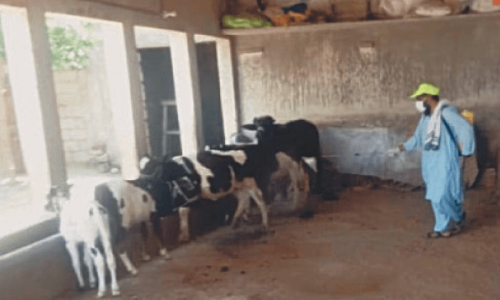ISLAMABAD: A coffee table book on the ‘Colours of Deosai’ was launched at a local hotel on Monday.
Authored by Arif Amin, a biologist and educationist and Ghulam Rasool, a noted photographer, the book contains stunning and eye-catching photographs of the fauna and flora of Deosai, the second highest plateau of the world, after Tibet.
The chief guest for the event, Federal Minister for Information Marriyum Aurangzeb was about two hours late in coming.
Speaking at the event, Ambassador of the Netherlands, Ardi Stoios-Braken said: “I am amazed by the beautiful pictures of the flora and fauna of a region of Pakistan I have yet to set eyes on in person, the Deosai plains in Gilgit-Baltistan”.
She commended the authors for the “exquisite manner in which they have captured this unique but also vulnerable ecosystem”.

She said the book not only draws attention to the beauty of unique ecosystems but also the degradation they are facing, be it a result of climate change or of other environmental pressures.
“In its own manner and in line with its own mandate, the economic team at the embassy works hard to promote enhanced trade and investment relations between The Netherlands and Pakistan that are in line with sustainable development goals,” she said.
The ambassador, who is also a bird watcher, talked about her experiences hiking up the Margalla Hills and how she is disturbed by the rubbish strewn along the hiking trails.
She said she hoped many people will get to see the beautiful photos and will be inspired to play their role in preserving the many unique ecosystems of Pakistan.

Talking to Dawn, nature photographer, author, educationist and biologist Arif Amin shared his passion and love for nature and his extensive travels around the country.
He said the aim of the book was to highlight the fragile ecosystem of the Deosai plains and their vulnerability to human intervention and to create awareness among tourists, hoteliers and locals to preserve its fauna and flora.
He regretted that the tens of thousands of tourists visit Deosai but do not care about its fauna and flora.
He said many rare birds in the plains die after eating chewing gum thrown by tourists.
Amin said he is concerned about the lack of civic sense and irresponsible behaviour on the part of tourists towards nature.
He said Deosai has been put on Unesco’s heritage list temporarily and urged the government, corporate sector and tour operators to join hands in giving permanent heritage status to Deosai by taking measures to protect its unique and fragile ecosystem.
He said Islamabad and the government of GB should recruit staffers and game watchers to look after the vast expanse and that currently, only five people have been assigned to protect the 1,200 km plains.
Published in Dawn, April 3rd, 2018














































Dear visitor, the comments section is undergoing an overhaul and will return soon.